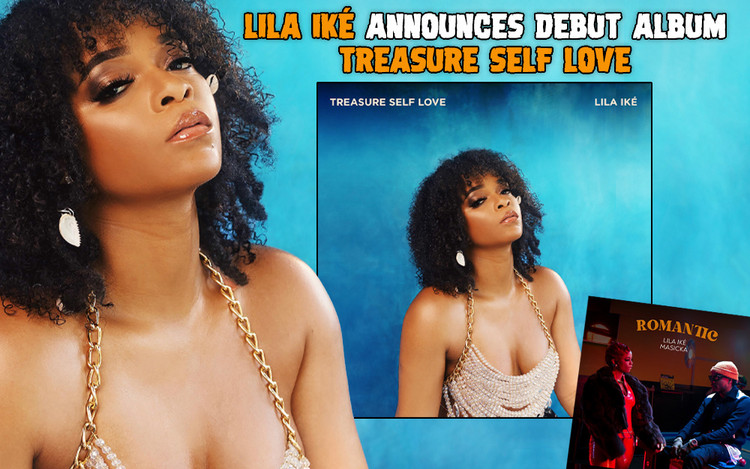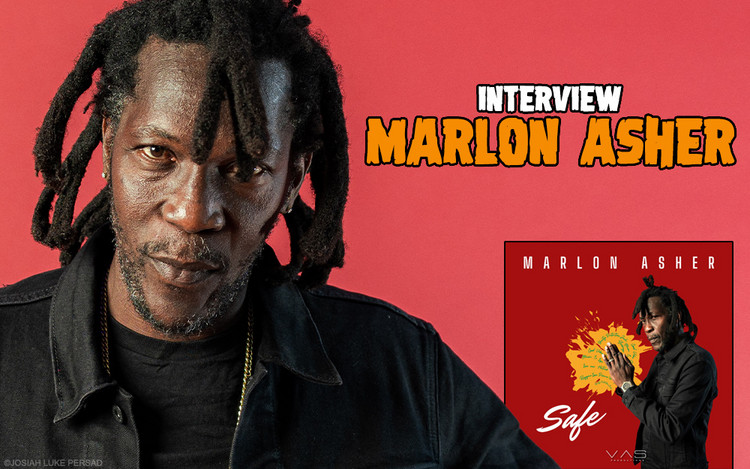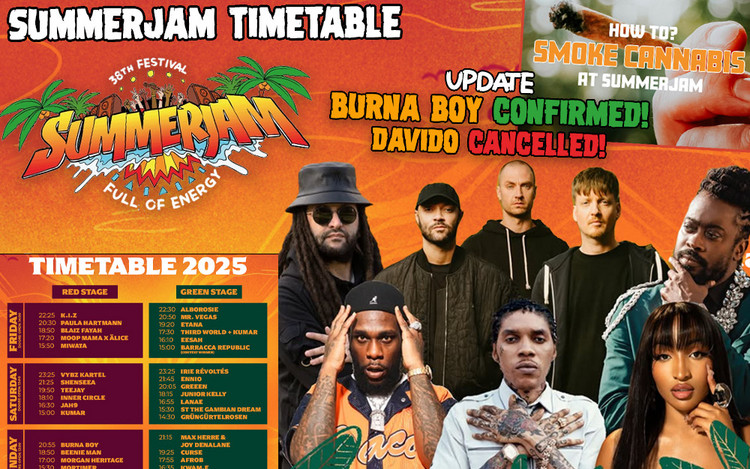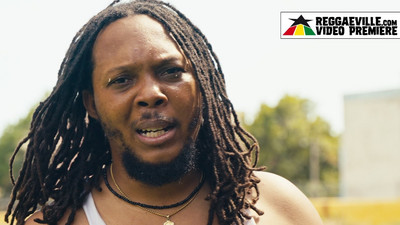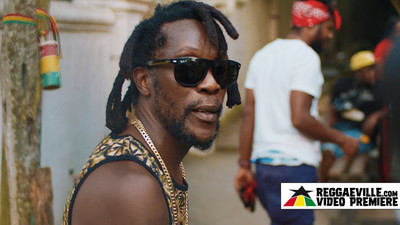Xana Romeo ADD
The Roots Of X - Interview with Xana Romeo
08/08/2021 by Gardy Stein
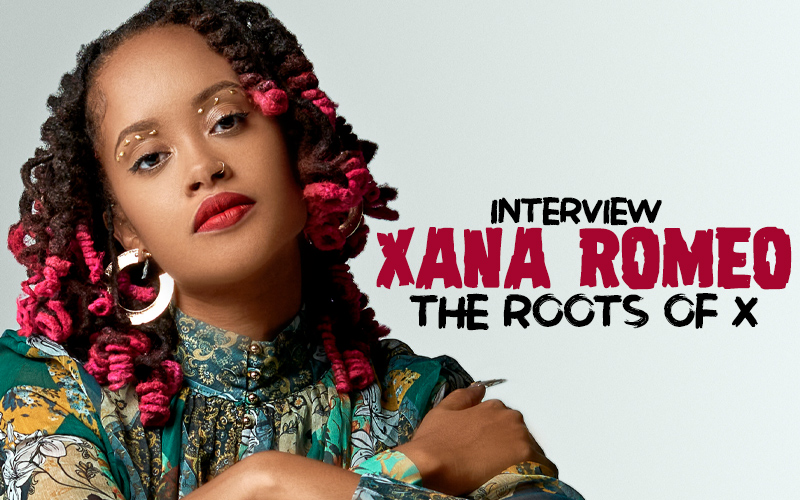
When encountering this young lady for the first time, don't let her delicate and slender appearance deceive you - there lies an X amount of resolve and power within her! Azana Makeda Smith, better known by her alter ego Xana Romeo, is the youngest daughter of legendary Reggae veteran Max Romeo, thus having the best mentor one could wish for. It is no surprise that Xana chose to trod the musical path as well, and a natural talent for the arts, especially for singing and writing, have helped her to grow into a serious artist.
She introduced herself to the world in 2016 with her beautiful debut Wake Up, and has continued to observe, analyze and express what moves her ever since. When the pandemic put a halt on everybody's movements last year, Xana decided that it was about time to finish the sophomore release she's been working on for some time. The Roots Of X is out now, and it is an extremely mature work, highlighting original Reggae music and spirituality in a way few modern artists do.
Reggaeville linked up with the singer, songwriter, farmer, entrepreneur and mother to talk about her new oeuvre as well as the meaning and stories behind the individual songs, touching on issues such as religion, female empowerment and the state of the Jamaican music industry in its course:
Greetings Xana! How are you, how is the family?
I'm doing well, the family also is doing fine, we are just here trying to stay alive during this pandemic.
The last interview we did was in 2016, and a lot has happened since then in everyone's lives, I guess. What were the last five years like for you, your personal and your artistic development?
Before the pandemic, I was busy touring and promoting my last album successfully for four years. I was mostly travelling. Since the pandemic started, I've been back home here in Jamaica. I know that it is not a happy time for the rest of the world, but I really do appreciate being home with my family, being back in Jamaica for a while. I haven't travelled since 2020, up until now, and I've been enjoying it. I've been working with my father on the farm, I started doing some planting for myself, I've been able to plant my own tomatoes, peppers, callaloo and so on.
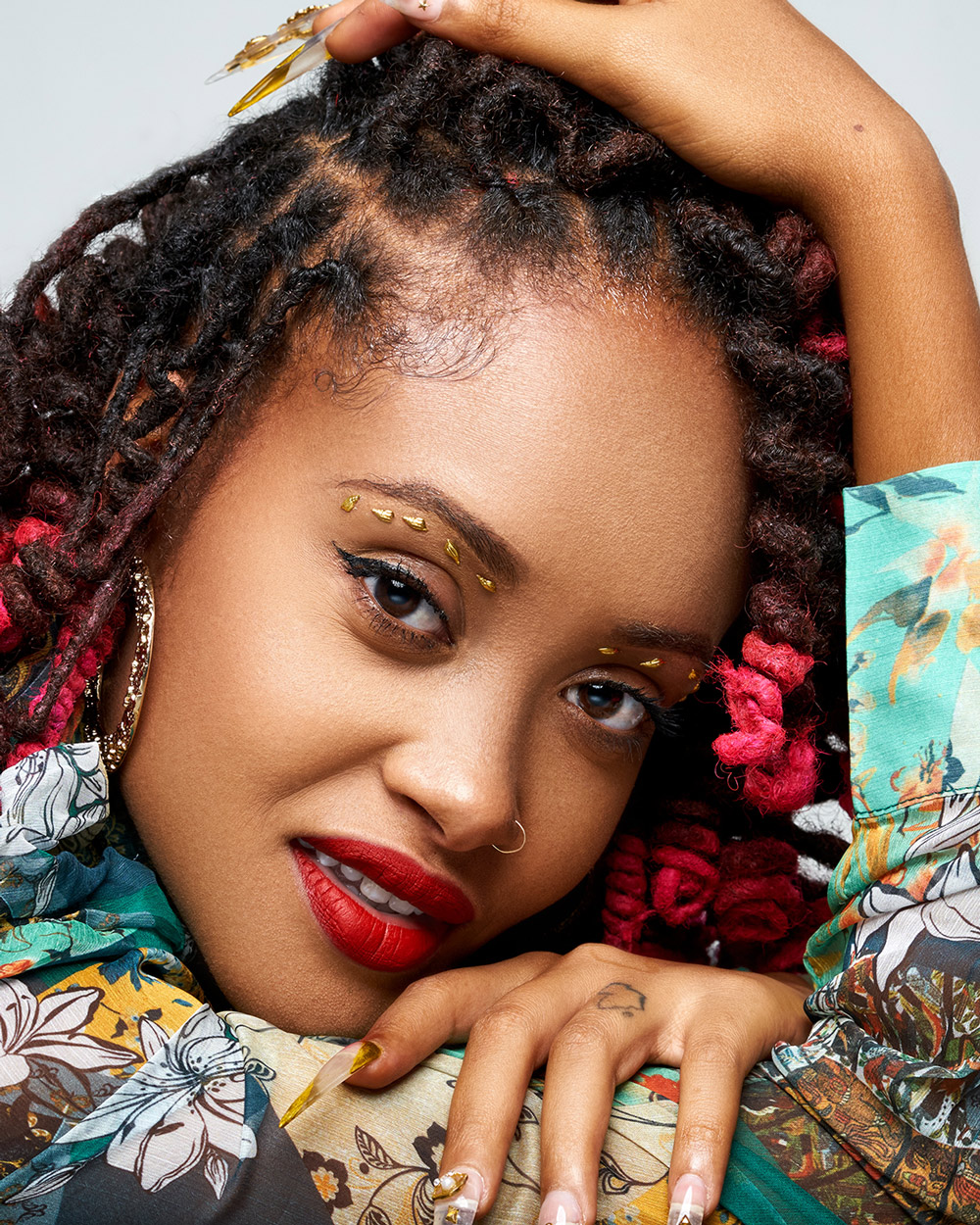
This period also gave me enough time to go back in the studio and finish my second album. I've been working on this for a few years now, but I really didn't have the time to buckle down in studio to get it finished, so being here at home I decided I wanted to finish the album and release it.
The album is called The Roots Of X, can you elaborate on the title and why you called it that?
At first, when I finished the album, I didn't have a title. I didn't want to title the album from one of the tracks on it, because I didn't think that one track could define the entire album. I was approached by VP Records last year, in November, and they asked me if I would be interested in working with them for my second album, and I decided that I would license my album to VP Records. When I was finished and I submitted the album to VP, they got back to me to tell me that they are not interested in working on any Roots project or Roots Reggae music, that the industry has closed its door on Roots music and that Roots music is dead. I really didn't like that response at all! Being a person who had the opportunity to travel most parts of the world, I know that Roots music is very much alive, even more alive than Dancehall music in many countries.
It left me to dig deeper, to realize that Jamaica really does close its door on Roots music. Almost all the record labels and everybody working in the Jamaican music industry, they only focus on Dancehall music, dem no really interested in positive music! Cause, to me, Dancehall music is not positive. It's not good for the youths, it is not good for anybody, it's poison.
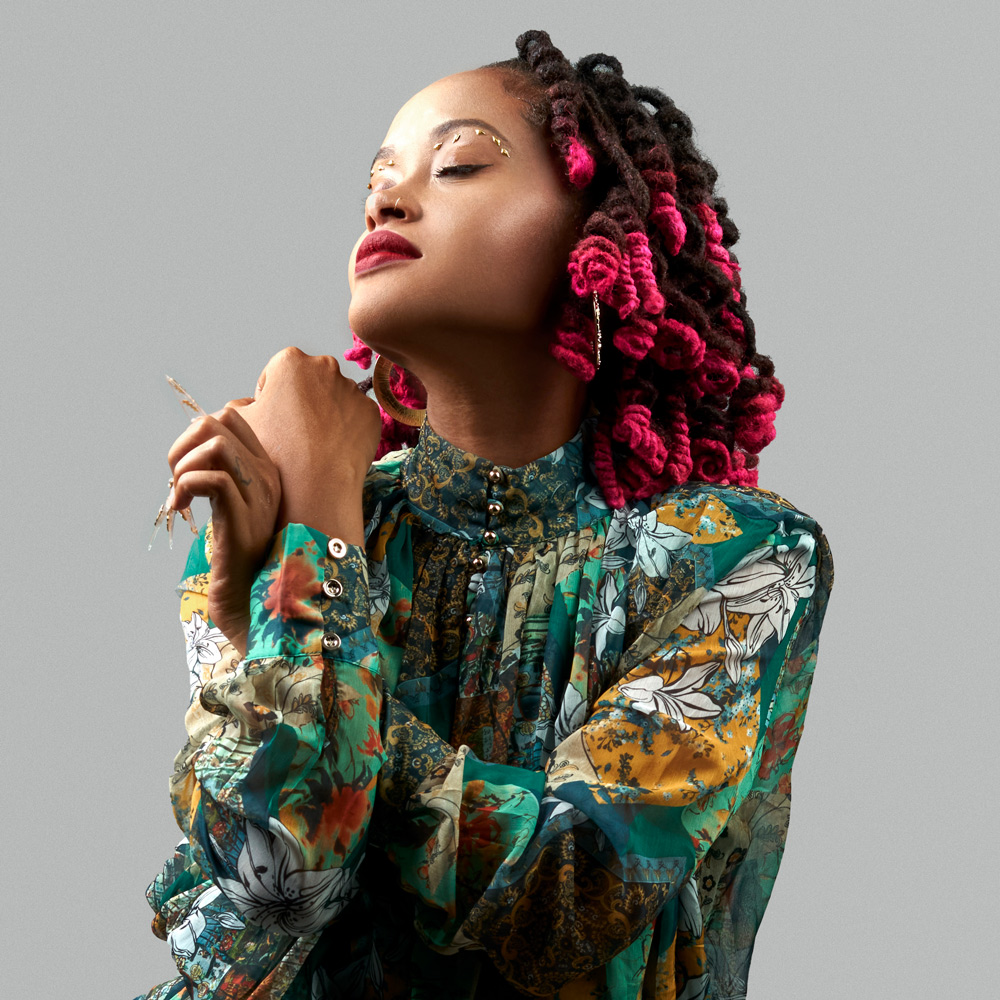
When I decided to name my album The Roots Of X, it's because my album, my music, is a representation of myself, it's coming from the roots of me. It's not just what is trending nowadays or me trying to be a part of what is going on, it's me continuing and watering my roots and to ensure that generations to come, future generations, have music of substance to listen to and not just Dancehall. The youths here in Jamaica are forced to listen to only Dancehall music, they are exposed to that, and I don't like that at all. Me being a mother, I don't want my son to listen to Dancehall music, I wish I could shield him from that, from the perverted messages. So The Roots Of X is really just like a continuation of my roots, you know, for the future trees and branches that will spring from these roots, to be able to have music of substance to listen and learn from, that's why I chose this title.
Very fitting. You posted a statement about that on your social media as well, about the state of Roots Reggae music in Jamaica, and it sparked a lot of comments. You said in your post that "there hasn't been any Roots music releasing from Jamaica recently", but isn't that a bit harsh? Actually, there are some Jamaican artists who continue to produce Roots Reggae, artists like Micah Shemaiah, EarthKry, Mystic Revealers, Rootz Underground...
Yes, well, saying that it is harsh... I think that those people like myself who have been trying to uphold the Roots Reggae music would agree with me. Even though we have been releasing Roots Reggae, artists like myself and Micah Shemaiah, we haven't been getting no recognition. Our music is not being released on any major platform, no big record label is interested in working with us because we promote and push positivity. So, even with my first album Wake Up, most people don't classify it as officially or professionally released because it wasn't released by a major record label and it wasn't pushed by anybody with a major cloud. And with my second album now, me... when you produce and release your music yourself, promote your music yourself, it is not really considered an official or professional release, so when I said that there hasn't been any Roots music released from Jamaica, I mean that there hasn't been any Roots music released from the major platforms in Jamaica, the major music houses.
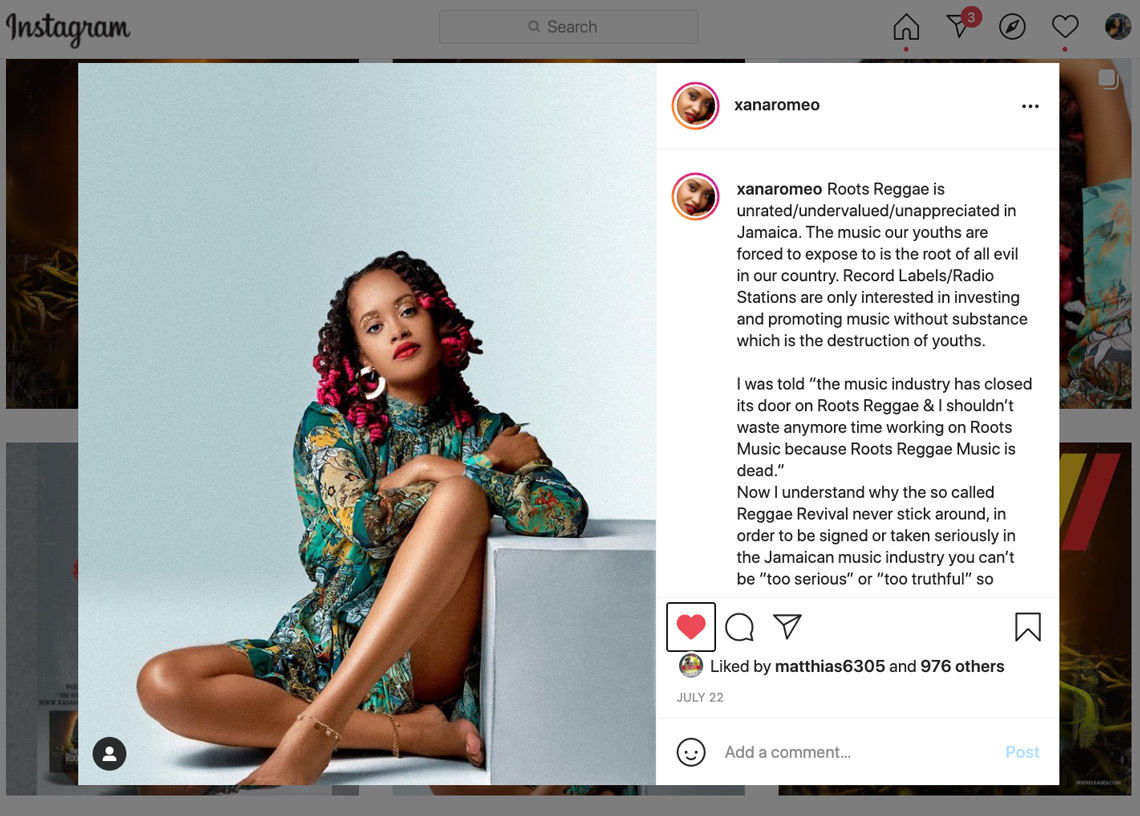
What I can say from the European side of things, those releases are definitely well received here! But I guess you are speaking about the reception in Jamaica itself, right?
Yes, I am.
Lucky we have people like you who push forward and bring out great Roots music. I'm really amazed and blown away by the quality of the production, by your voice and your lyrics, so first of all big respect for that!
Thank you.
Who was involved in the production of the album?
In the beginning of the process of working on music here in my studio, it is always me and my brother Azizzi. We would lay out the blueprint of the music together, the majority of the instrumentals on the project is composed by Azizzi. And then, when that is finished, I would move on sending the music to Jallanzo to mix and master it for me. So, on the project, you have basically nine songs, two of them are composed by Jallanzo, the remaining seven are composed by Azizzi, one of them, Spiritual Guidance, by Azizzi and my uncle from London [Linford "Blacklindy" Lambert]. It is the same team that I worked with on my first album. Me, Jallanzo and Azizzi.
Who played the instrumentals?
Both Azizzi and Jallanzo played most of the instrumentals. Also Stone, a bass player, played bass on some of the tracks. Azizzi played most of the keyboards, Jallanzo played guitar and drums and some other percussions. We also have a track where Addis Pablo is featured with the melodica, so... it was a small team of people.
It sounds very organic. Especially on the first track Holy, where you also hear some horns... what was the motivation to write that song?
It was basically me looking at the state of the music industry, and a lot of comments that I get from people. People always ask me why I don't go commercial, why I'm not involved in the Jamaican music industry more, and I would tell them that I was offered a lot of opportunities that I refused that were later on passed to other artistes who make use of them. The reason why I refused those opportunities is because I don't really see myself as the type of person that would work for the devil, you know.
Holy is really me saying that I'm not willing to do what it takes to make it big in the Jamaican music industry, I'm just here to spread the word and message of the Almighty. I'm not interested in fame and money, and I won't do what most of these female artists do in order to be recognized. And I'm happy that I don't have to do it either, because I was born in a family that already has a certain recognition in the music industry, so I just have to take that and make use of it. I don't have to sell myself to be known and I don't have to bow to make money, so I'm not the kind of person who worships vanity and idolizes peope. I'm just here to spread the messages and do the works of the Almighty, that's basically what I'm saying in Holy.
Beautiful. Another very spiritual song you already mentioned is Spiritual Guidance featuring your brother Azizzi and Addis Pablo. Maybe you can give people advice who to turn to for spiritual guidance? I mean, you were blessed to be born into a very spiritual family where the teachings are a very prominent part of everyday life, I guess, but people who don't have this family background, where could they turn to to find spiritual enlightenment and guidance?
I always tell people all questions that we can't answer are in the messages left by our ancestors. His Majesty is now an ancestor, and we have many other ancestors out there who left messages, powerful messages, that can guide us on our path and that will guide us today. What I would say to people, what I would say to the youths, is to listen to the words and the guidance of your ancestors. We young people nowadays, we have that thing where we don't listen to older people and we don't really believe that experience teaches wisdom, but it does. And my spiritual guide is my ancestors, I try my best whatever I need to find out I go ahead and I research it and I always find the answers in our ancestors. That's the Spiritual Guidance, and we should look to them for answers.
Another feature on the album, on the track Youths First, is your father. It's a beautiful combination, did you write the lyrics together?
I wrote Youths First on my own, I originally was going to sing it myself, but then when I listened to my version of the song, I told myself that the song would create more of an impact if I had my father deliver the chorus, the message of the chorus. If a message like this comes from father and daughter, it would create more of an impact. So, when I listened to the chorus of the song that I wrote myself, I would really write words that my father has been saying in my ear for years, so I was just writing back the words that I heard from my father. That's why I asked him to deliver the chorus for me.
The inspiration for Youths First really came from me being a mother, my experience with motherhood. I really get to realize the flaws that us parents have, you know, and I thought that if I could share how I see these flaws to other parents, whether younger or older than me, they would get to understand. Because we, the adults of the world, really don't put the needs or the wants or anything of the youths first, we always look at them and just tell ourselves that they are coming up. We don't realize the fact that they are here, already ahead of us. The younger you are, the more ahead you are from another person. And I truly believe that if we put the needs and wants of our youths first, then the world would definitely spin in the right direction. We trying to please ourselves, doing all this for ourselves, doing what we think is right, is really one of the destructions of the world right now that we're living in.
A similar focus is taken in Born In Sin, which really speaks to the grown-ups of today to tell them what's going wrong in the education of the youths. What, for you, would be the most important thing to change in the way we bring up the youths of today?
Religion. Religion is no different from racism, in terms of, in racism people segregate and separate based on color, in religion they segregate and separate based on who or what God you praise or worship or look up to. When I wrote Born In Sin I was writing based on the youths of Jamaica, because when I travel the rest of the world I realize that most parts of the world aren't as religious in the household as Jamaica is, you know. In Born In Sin, I am trying to tell these parents of Jamaica that when you grow a child and you separate and segregate them based on religion, you're not doing them any good.
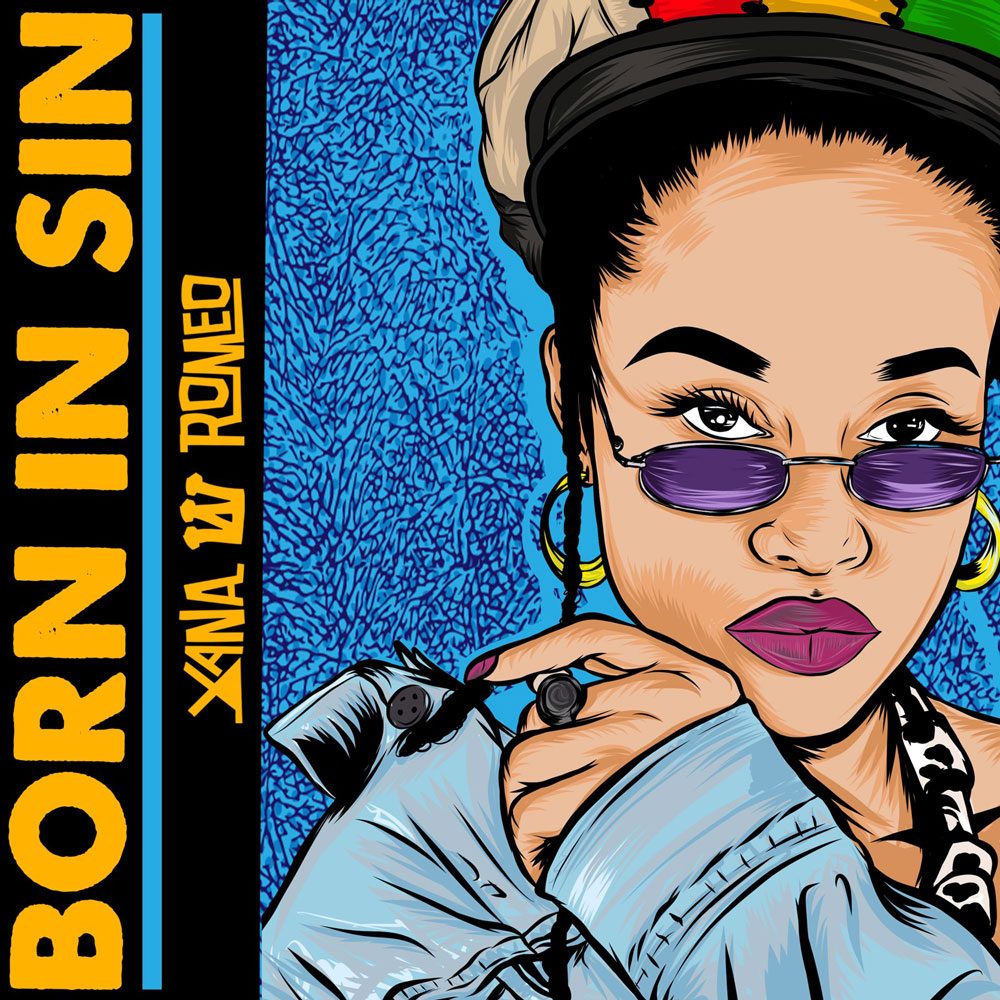
I was sent to a Seven Day Adventist school growing up, my father sent each of his children to another school from a different church denomination. I went to Seven Day Adventist, my sister went to Catholic, another person went to an Anglican Highschool, so we all could get an experience to what these people are like. Me being there in Seven Day Adventist, I remember every morning in devotions, they would tell us kids, innocent kids, that we were born in sin and being raised in iniquity, and I used to question myself then, wondering that I'm not responsible for anything, cause I was already born in this, how can I be blamed for any bad action I choose to apply to myself? It is there for grabs. And then, when I became a mother, I was told that I should scold my child, punish my child when he does anything wrong. And I said to myself 'How this child know that this thing is wrong?' If my son decides that he wants to do something, it's probably because him hear it in the music, him see it on TV. He was born innocent, with a clean spirit, and all the evil that will be in him was taken on from this world, you know.
God born every single child innocent, and we adults corrupt them. So, in Born In Sin I was trying to tell the adults that we need to take the blame, we can't blame the youths. No future murderer is to be blamed, because this child grew up, watching these violent movies, probably being around violent adults, I don't believe that no child was born bad, all of them was just corrupted.
How much responsibility would you lay on parents compared to society, how much part in this corruption? What could parents do to protect their children from what is prevalent in society?
All responibility is on the parents, because they are who make up the society! We can't divide ourselves from society, we are the society, the society is us. Society is just a word, it is not tangible, we can't touch it, we can't see it, it is us that make up, that define this word, so it is always us adults that is to be blamed. Here in Jamaica, we go based of the rules and the laws of the bible. That is what our society judges people based of. And if we were supposed to move based on the rules and the laws of the bible, the bible said that no child is responsible for his or her sin, under the age of 12, so it is us adults that is responisble for everything.
We are the ones who created this society and force our children to grow up into, to be a member of it, and if they decide they don't want to be a member of it, we punish them. It just all goes back to us as people, we are to be blamed of everything. And when I say us, I am not excluding myself. I'm an adult myself, I am just one of those growing up to learn the responsabilities of being an adult, and what it takes to be an adult and what I need to do to prepare my children to be better members of society. The way the system is set up, we can't choose not to be members of society, we are forced, I was forced to become a member of society when I was 18 years old, I couldn't decide that I didn't want to do it, it is not possible, you just have to. It is a pattern that keeps going, and we need to change that pattern, because it is leading to destruction.
In Marijuana Culture you speak about another aspect of society, you mention Marijuana as "the heart a we culture". Do you mean the Jamaican culture in general or the Rastafarian culture in particular?
I was speaking based of Jamaican culture. Rastafarians are the heart of Jamaican culture as well. It is known that it is Bob Marley, Reggae music, Rastas and marijuana that put Jamaica on the map, that's what we are famous for, before Usain Bolt and everything that became popular. When you say Jamaica to people outside of Jamaica, they think 3 things: Ganja, Bob Marley and Reggae music, that is what Jamaica is famous for. The person who made Jamaica famous was Bob Marley, and he and The Wailers were major advocates for marijuana, for the healing properties of marijuana.
Marijuana Culture, I wrote that song because... when Mercy Please was released, it was the introduction to the decriminalisation of Ganja here in Jamaica, this was when it just begun. There were no dispensaries and herb houses at the time, and I sat back to watch these herb houses and dispensaries come to life, and I realized that they are no good for the marijuana industry or... I don't even know what word we use here in Jamaica for it. If you ask me, it is destroying everything marijuana here in Jamaica, and I'm not saying this to say that herbals and dispensaries are evil, they are just going about it the wrong way. The people who dem have working in these places, they are not educated about marijuana, they can't teach you anything about it, they don't know... it's many things. We would probably have to do a seperate interview about this entire topic.
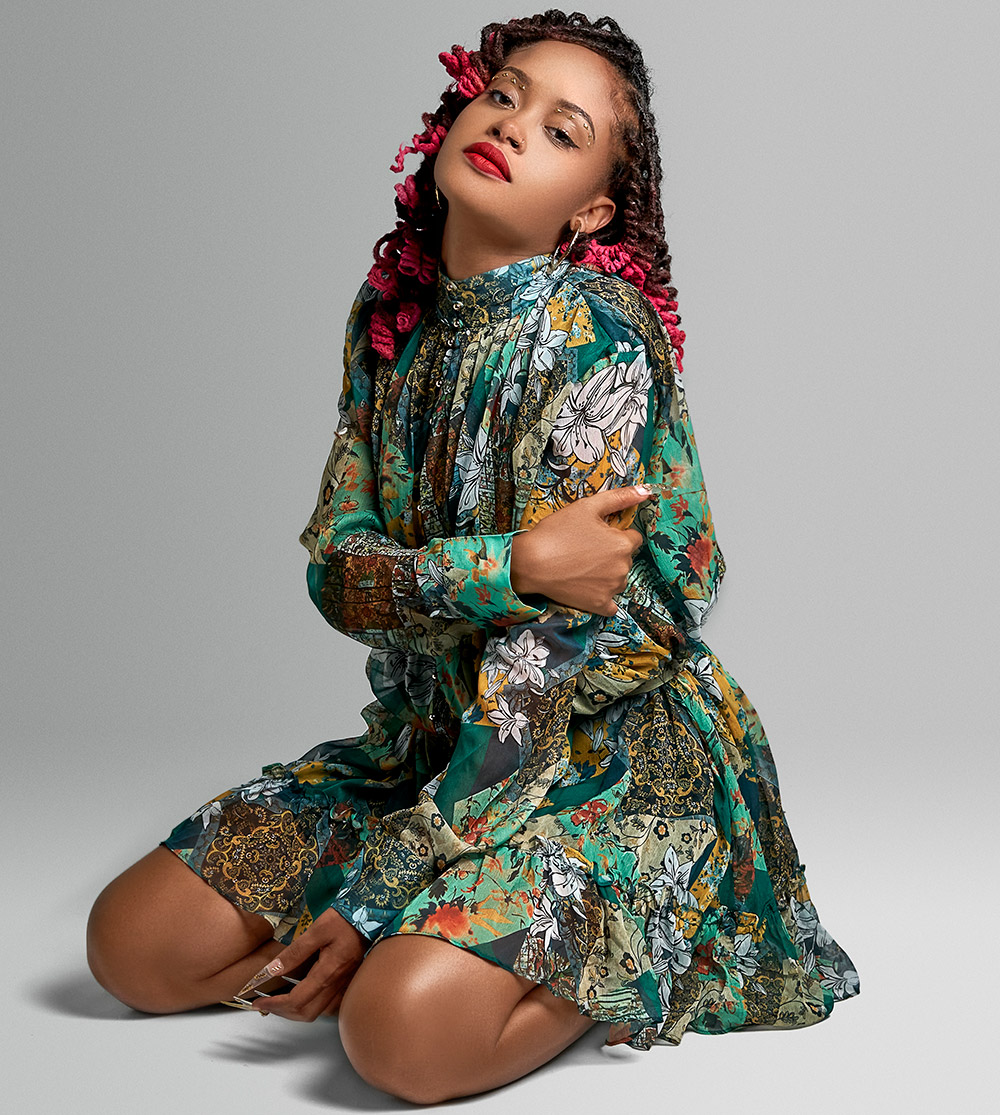 But what is going on in the marijuana industry here in Jamaica is injustice towards all Rastas, our ancestors, who used to get discriminated and abused for marijuana, they are getting no sort of profit or anything from the decriminalization of marijuana, they don't even act like it's coming from us. Everybody is acting like it's coming from some educated up-town light-skin that found out the importance of marijuana. Right now, there is no true Rasta or Rasta House that is given the OK to own a marijuana dispensary here in Jamaica, you know. First of all, they set up the system in a way that you have to be a millionaire in order to get a license, and it is going to take years and generations from now for Rastas to become millionaires because of the stigma that dem put on we. It is slowly shedding, but it don't reach to a point where we are high enough members in society to make so much money to be in them clique or them crew for them to even look at us, you understand what I'm saying?
But what is going on in the marijuana industry here in Jamaica is injustice towards all Rastas, our ancestors, who used to get discriminated and abused for marijuana, they are getting no sort of profit or anything from the decriminalization of marijuana, they don't even act like it's coming from us. Everybody is acting like it's coming from some educated up-town light-skin that found out the importance of marijuana. Right now, there is no true Rasta or Rasta House that is given the OK to own a marijuana dispensary here in Jamaica, you know. First of all, they set up the system in a way that you have to be a millionaire in order to get a license, and it is going to take years and generations from now for Rastas to become millionaires because of the stigma that dem put on we. It is slowly shedding, but it don't reach to a point where we are high enough members in society to make so much money to be in them clique or them crew for them to even look at us, you understand what I'm saying?
So, injustice is happening towards us Rastas here in Jamaica in regards to marijuana, and I wrote that song because I'm really not a fan of any of these herbals here in Jamaica, because I see none of them going about it the right way. I even look at how them choose them ambassadors to represent marijuana, and all of them choose a Dancehall artist, not Rastas, if you understand. I don't get their agenda, but they are trying to make marijuana into some sort of drug.Them try to tear the stigma down of marijuana, of it being a drug, saying that we accept that it's healing, it's powerful and all of that, but the people they use to represent marijuana is people who use these other drugs and associate it with them! And when you mix marijuana with that, it don't look good!
True, thanks for the elaboration. I think it's a big topic, and I see that you are very involved with the discussion. On your Instagram I read a post where you commented on the role of women in the marijuana business, but I don't remember the exact wording... what was it you said?
It was in an interview, I said that it wasn't until us women became involved in the public discussion about marijuana that it was taken seriously. I find that to be very true, it was when us females, we started advocating for marijuana, that marijuana started to be taken seriously and then, a few years later, it has been decriminalized and legalized in many parts of the world. But now it's like you have women fight for the rights of marijuana and them try to kick us out! I went ahead and did some research based on the internet, we all know that the internet is not really truthful sometimes, but I found out that the industry is pushing out females now, and most of these big corporations who fund marijuana projects and so on, them don't really interested in funding anything that females do. Even me myself, I see where people would rather work with a man over working with me in the marijuana industry.
But it is very normal, it is women fighting for the rights of a lot of things. The Black Panther was really started by serious member's women, many other organizations too, and then in the end they probably mention just one woman out from all of them. Women never really get treated fairly, we never get our fair share of fame for whatever we do. In that interview too, when I did that research, I found out that it was Judy Mowatt, she was one of the first persons, not Peter Tosh, to go viral with a photo smoking marihuana.
Really?
Yes! I always thought it was Peter Tosh and I was shocked (laughs)! So, women don't get their fair share of fame or recognition, it's been happening for years, and again with the marijuana industry. I was very active in the marijuana industry in the beginning of my career, but in the recent days... it's not that I stopped, but I just started working more on stuff that has to do with myself and not collaborating and working with people. Because I realized that when you work for yourself, there is no need to seek approval or recognition from people, your work speaks for itself, that's why I focused on myself more, so my work can speak for itself.
Speaking about the feminine energy and about Judy Mowatt especially, that brings us to the track Brave Queen. Can you tell us what made you choose this song Slave Queen from 1979, to re-record a version of it and put it on the album?
This cover... I knew of the Black Woman album for years, but I never really zoomed in on all the tracks of the album. I discovered Slave Queen about seven years ago, and it became my favourite Judy Mowatt song. I remember when I first listened to the song, not just hear it but listened to the words, I said to myself, this is what is happening right now, this song could have been written and sung right now and it would be so relevant. And from that day I've been singing that song, not on stage, because I only sing my originals on stage, but I practically sing that song every day in my house. So, when Judy Mowatt received her lifetime achievemnt award last year, I decided... I planned a release before that, and then I realised that the song and the award was released practically on the same day, it was just divine timing, and for me it was then like a tribute to Judy Mowatt.
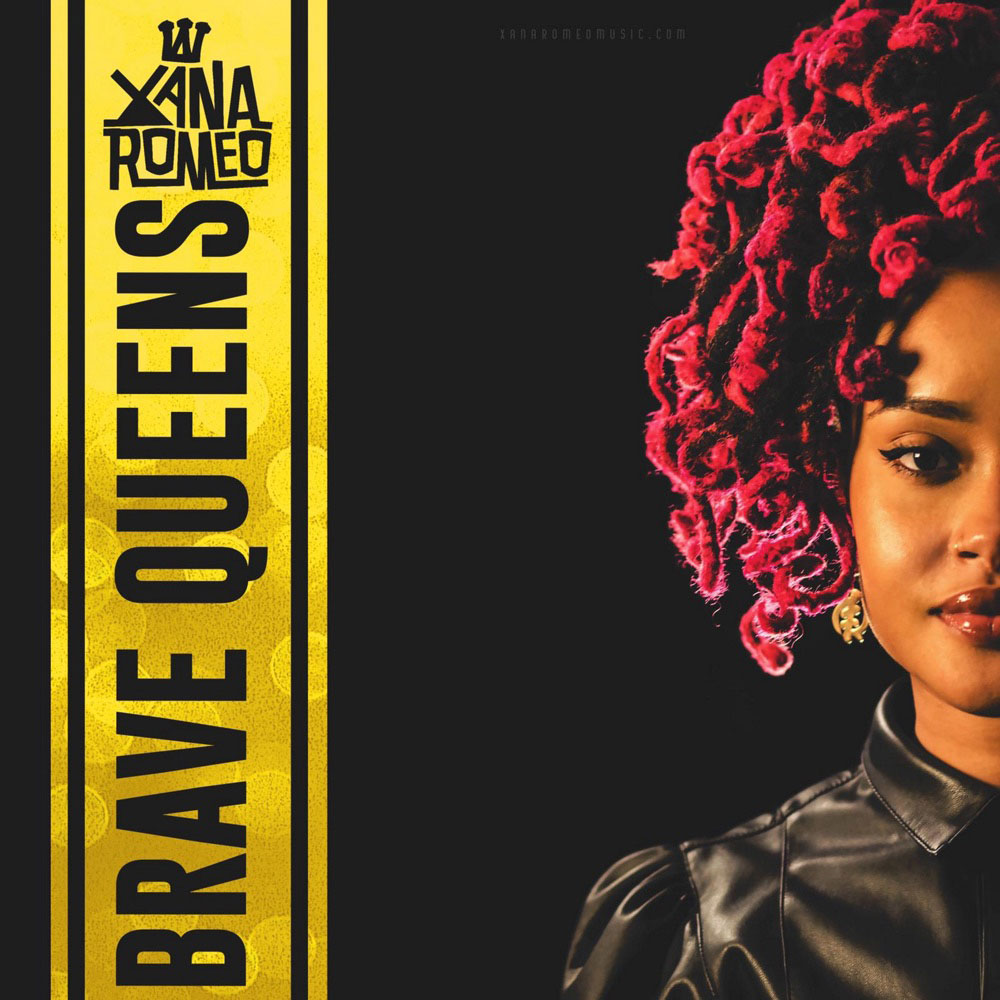
She is one of my favourite female singers of all time here in Jamaica, for many reasons. The mere fact that, back in the days, she did a lot of originals, and not just singing love songs, but a lot of songs with powerful messages, hence Slave Queen. I decided to sing over Slave Queen because I realized that, here in Jamaica, almost all of the females are so caught up in what is going on for them physically, that mentally and spiritually dem not even realize what is happening. Everybody wants to get a BBL [Brazilian butt lift], everybody wants to have light skin... Growing up here in Jamaica made me feel like everybody black is ugly and everybody that is light-skinned look good. Everybody who is skinny, something is wrong with them, dem sick, everybody that is fat is well fed. And I grew up to realize that melanin is power and fat is not really a definition of health.
Many things, so when I decided to sing Slave Queen, I said to myself I wouldn't use the word slave, because us black people don't like when you call us slave today in 2021. I wanted to redirect the message and put it in a way where young girls of 2021 would be inspired, so I said to myself: Brave Queen. Every young woman must be brave enough to not be caught up in what is trending but in what is right and truthful and good for her, not just for the entire world. I remember a lot of people telling me 'You are too skinny, you should probably get plastic surgery on your breast and your butt', and I'm like, why these people would even think that I need those things?
That's crazy!
And here in Jamaica, all of these young girls are caught up in it, everybody wants to be thick and light-skinned, nobody is embracing dem true beauty and it really annoys me. Being a Jamaican girl it annoys me most of the time, when I go out pon di road, a lot of people ask 'Why do you choose to wear dreadlocks, you are light-skinned, you would be way prettier if you had perm hair or if you would be more into the Dancehall type of lifestyle.' I decide to do music like this when, in the future, I'll probably have a daughter, I don't want when she listen back to my music that I was a part of what is going on, I want ther to know that her mum was always the type of person who believes that each person should embrace dem true beauty. If you are light-skinned, that's you, if you are a little bit darker, that's you, if you got dark skin, that's you! Nobody needs to feel uncomfortable in dem own skin or dem own body proportions, that's madness.
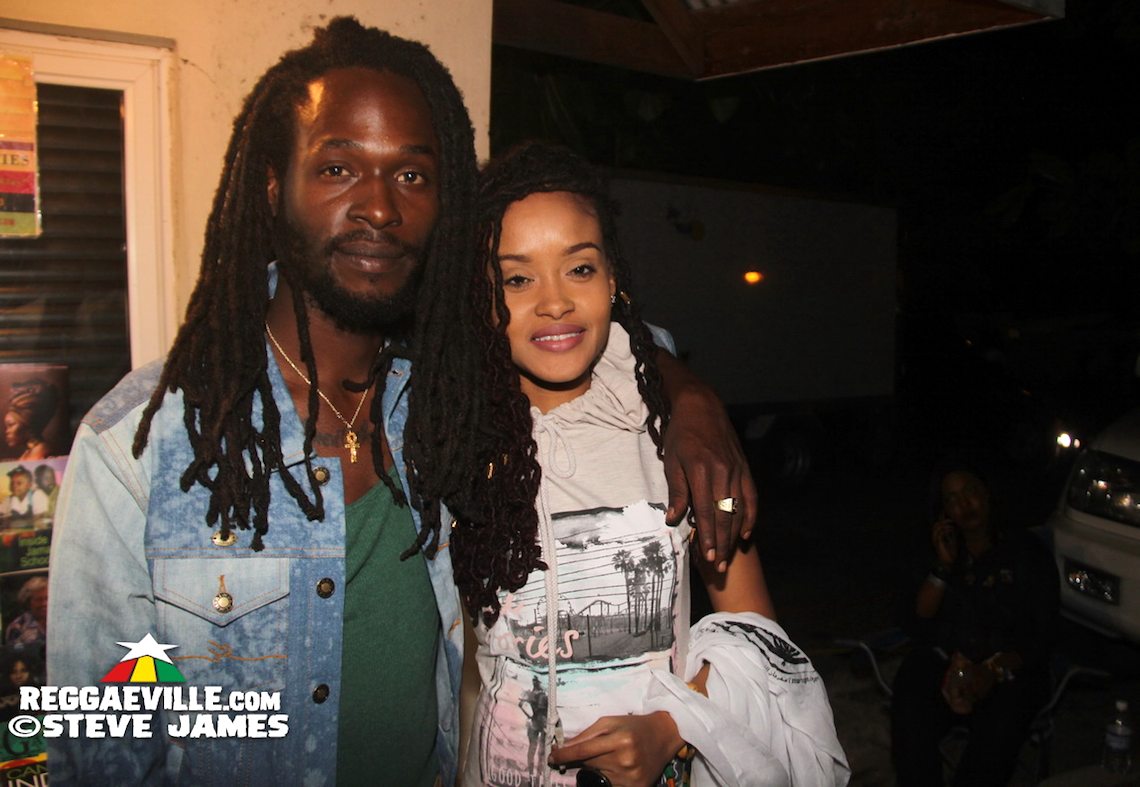
Even here in the Rasta community it's happening! I remember I came off tour in 2017 and I went to Kingston Dub Club, and this fashion designer Rasta woman, I wouldn't even mention her name, she stopped me there in the Dub Club to say to me 'You know you're too skinny, you should consider getting fat.' and I had to look at her there and then and tell her, 'Listen, don't let me get rude to you, I will disrespect you.' and I just walked away, cause I was wondering, of all powerful things that I am capable of, why should she focus on my body? My body has nothing to do with her! It is said that your body is your temple, and I'm not interested in making my temple some sort of false temple, making it look a way to attract people, the only person I'm interested in attracting is the divine! And I believe that God is with me, I don't care about anybody else.
Another powerful track I'd like to mention is Africa Is Calling. Have you been to Africa yet?
No, I've never been to Africa! That's why I say it's calling me (laughs).
Which country would you go first of you had the chance?
I believe the entire Africa, every country in the continent is calling me right now. One of the countries that I get most requests from to come visit is Kenya. So I believe that I would jump on a plane to Kenya right now because I know that I have a lot of people waiting there for me.
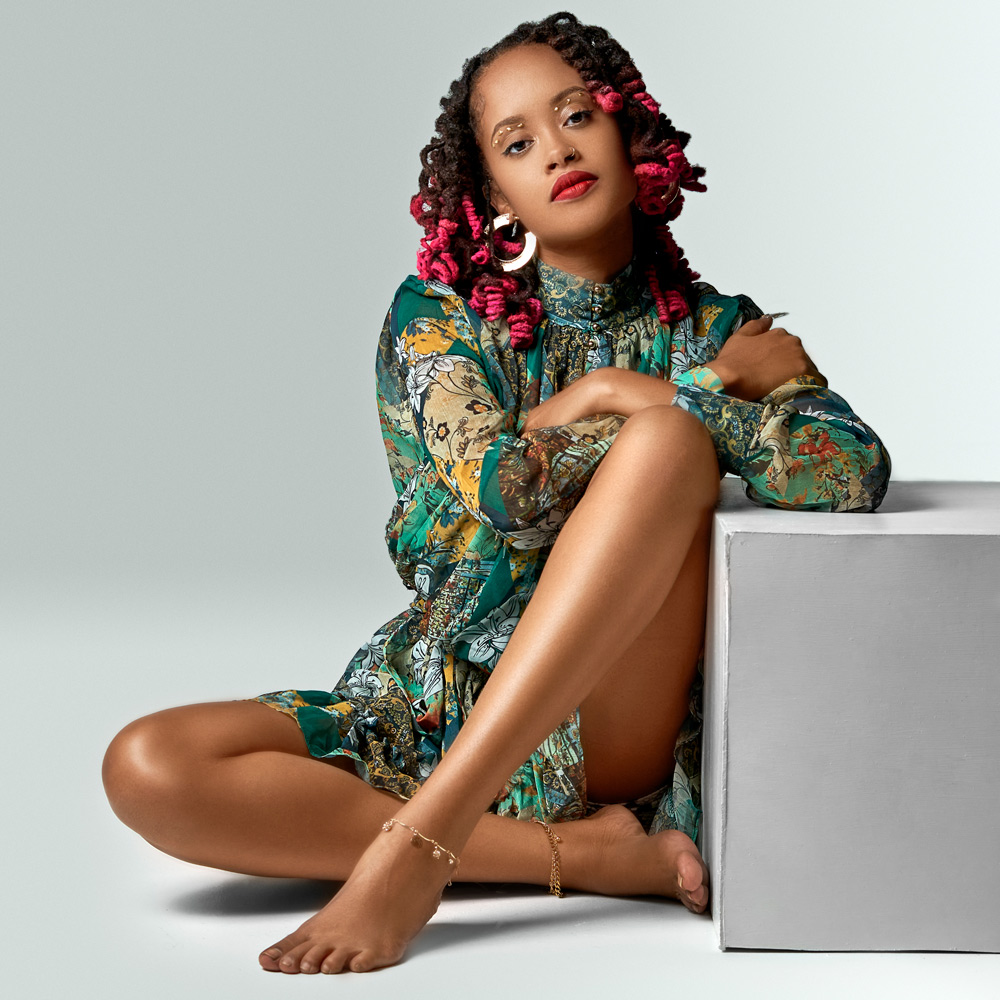
When things are getting better worldwide, hopefully you can manifest a tour there!
If it wasn't for the pandemic, I would definitely have reached Africa already.
There are two songs remaining, For My King and Product Of The Ghetto...
For My King is a love song dedicted to my son. Most people would listen and think I was talking to my spouse (laughs), but when I started writing it, I was writing a love song to my son and I realized that it developed into a love song that can be sung to my son, my father, my spouse, the King himself, it's one of my favourite songs on the project.
As for Product Of The Ghetto, I wrote it because a lot of people here in Jamaica don't believe that I was born and raised in the ghetto. It's like they think that only bad fruits will come from the ghetto, so one of my favourite lines is that "I'm living proof that the ghetto can produce good fruits, though they poison our roots and feed us processed foods". The ghetto that I was born in is Greenwich Farm here in Kngston, a beautiful place, a place that I visit every day, a place that I would really love to live because that's where my roots is, but unfortunately my family moved. It's just like me paying hommage to where I'm from, telling the world I'm not ashamed to say that's where I'm from, I'm not an uptown child, I'm a Product Of The Ghetto.
Who did the beautiful Cover Artwork?
The design was done by Artby Ancient, I contacted this artist based on Instagram. I've known his page for a while now, and him do a lot of inspirational work, I just look at it and I feel inspired, so when I decided to develop the cover, I thought he would be the perfect one. I just explained to him the vision that I have and the first draft that he sent me, I was pleased and I worked with that one.
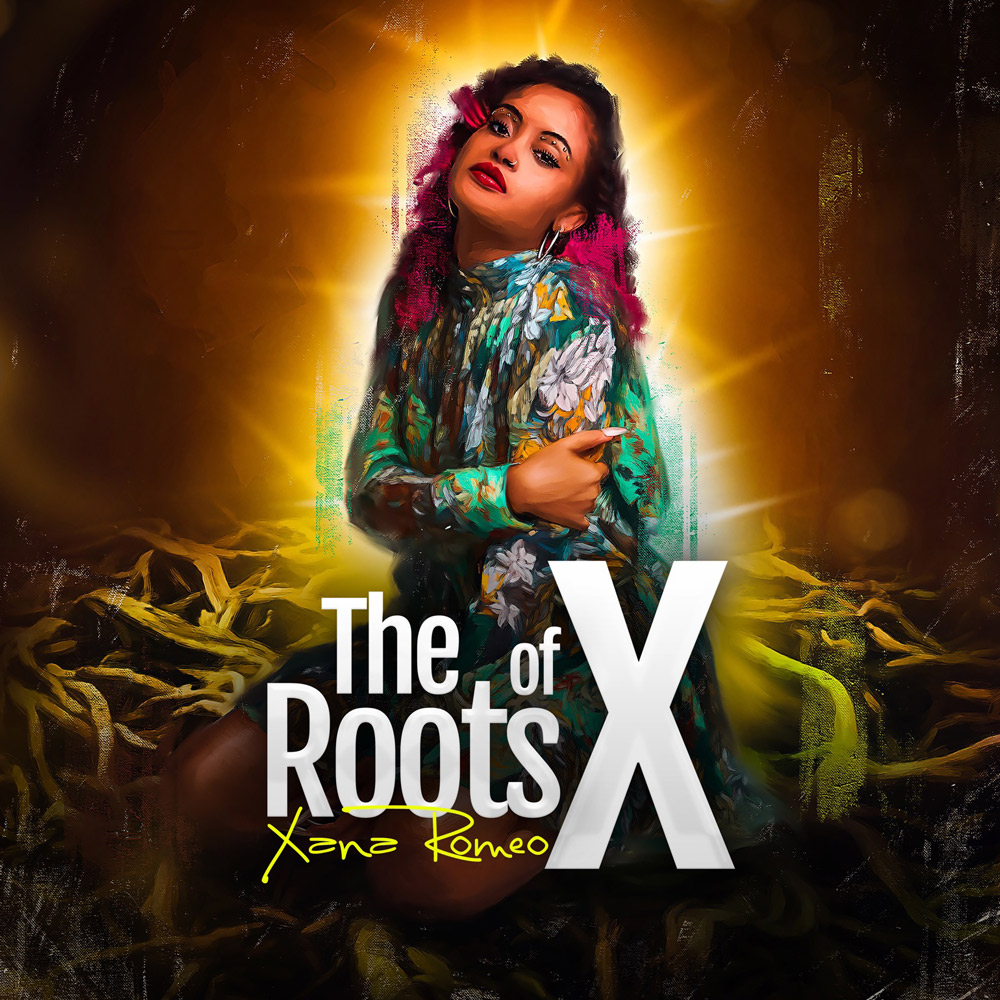
My last question would be, in our first interview you mentioned that you plan to create a label livicated to female artists called Roots Female. Has this materialized?
Well, I recently launched my own record label, but it's called Xana Romeo Music. This album is actually the first project I'm putting out on my label. I'm looking forward to work with other female artists. I'm not a producer in terms of composing instrumentals, I'm a songwriter, I look at myself as a writer first. For my label I really do look to write music for female artists if they are interested. I have my same team work on composing the instrumentals, so I look forward to working on that project with female artists in the future.
Wow, great! I have a regular radio show called The Many States Of Reggae, and every last Sunday of the month I'm playing an all-female special, so anything coming out from your label, I will definitely play it!
You should send me the link to that, I will definitely listen and support it! I do remember from the beginning of me starting this musical journey, when you've been here in Jamaica, you've always been kind to me and always supportive of me and my brother, I really appreciate that. Your attitude towards me is genuine, it's not just that of an interviewer or a media person, it's very genuine, I really feel like you do support me from the heart, so I would be happy and honored to return that favour to you. I can give you some professional jingles and a dub plate if you want it.
Thank you so much, Xana! I wish you all the best for your new album and all your projects. Is there anything else you would like the world to know?
What I'd like to say is meant for Jamaica mostly, not for the rest of the world. I know that other countries, other people, they do appreciate Roots music, and they welcome us with open arms and love. Whenever I'm in Germany, I feel appreciated, I don't even feel like I'm there working, I feel like I'm doing something that I love for people that love what I do.
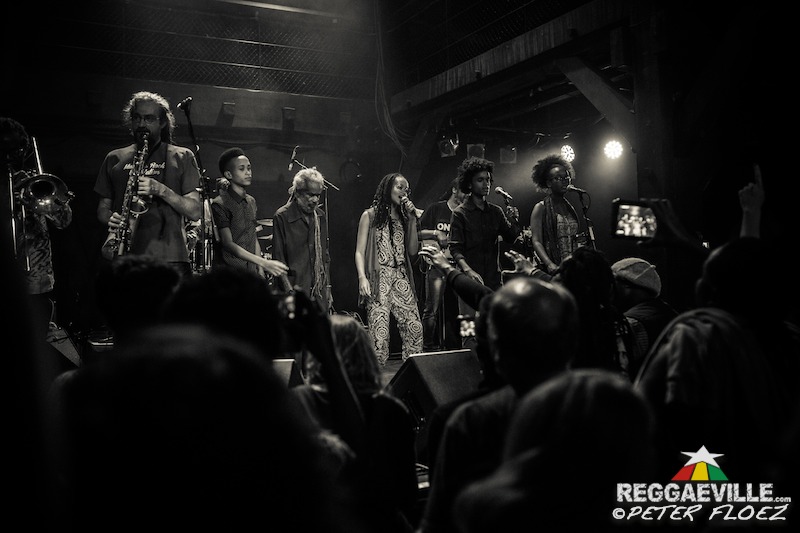
But for Jamaica, for the adults and the artists and the music industry, I need them to know that whatever music you put out now, it is not for you, it is for generations to come! I really think that they should focus more on the messages that they are putting out, on the things that they are saying, because the youths are being fed by this and what is created is not good. I feel that there need to be a clean-up of the Dancehall industry, I feel that the Ministry of Entertainment and Culture need to get involved. What is going on now in the Jamaican music industry is not pretty, it's not healthy, it is not fit for the future generations. We should start with more substantial messages, more recognition, they need to expose the youths to Roots! Too long them try to keep us in the corner, and hide us behind some closet. It is not good, so what I really want to say is: Expose the youths to Roots music so they can access the truth!




